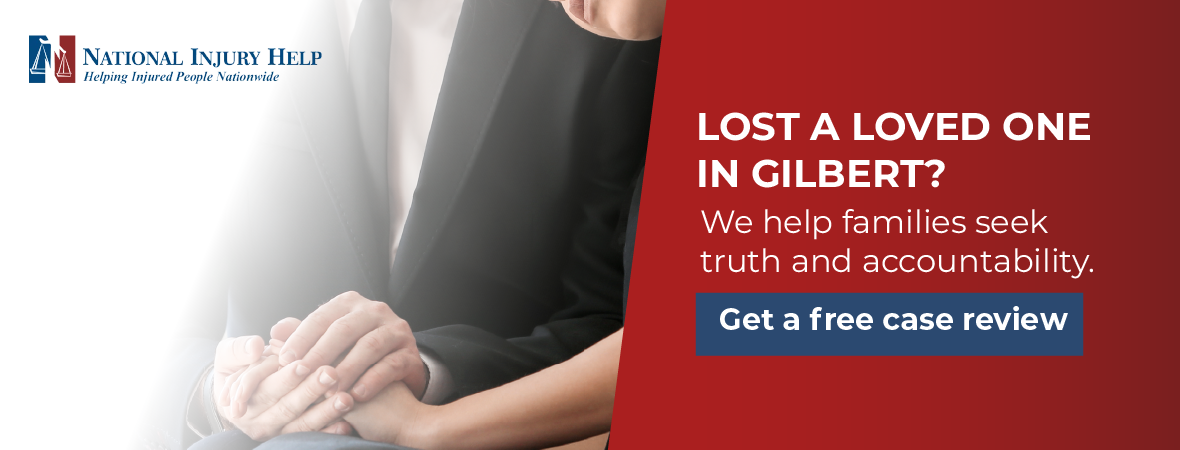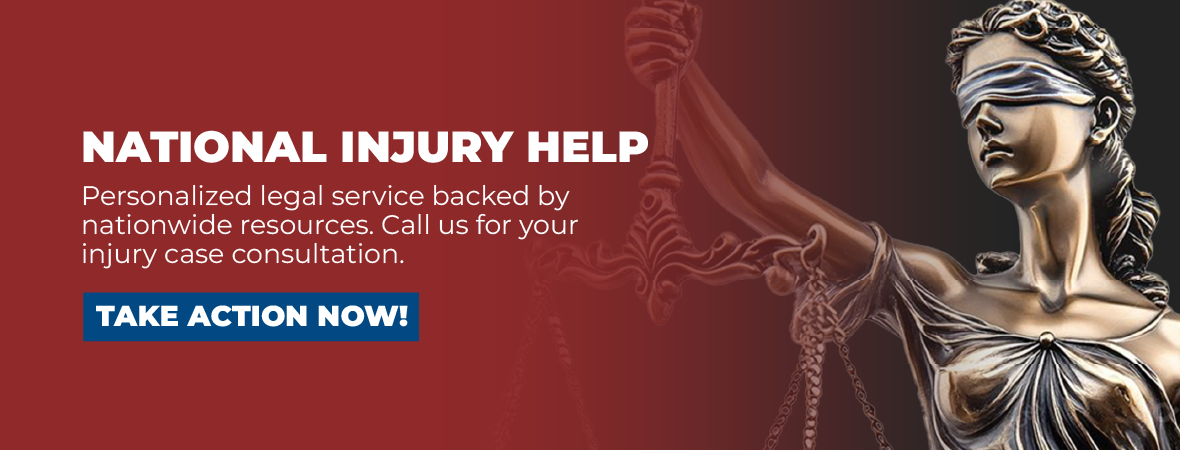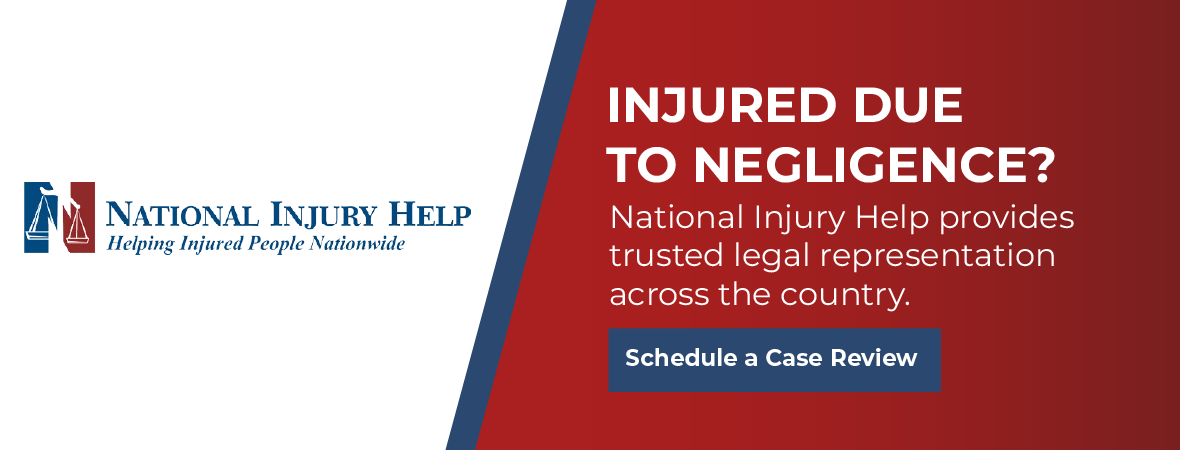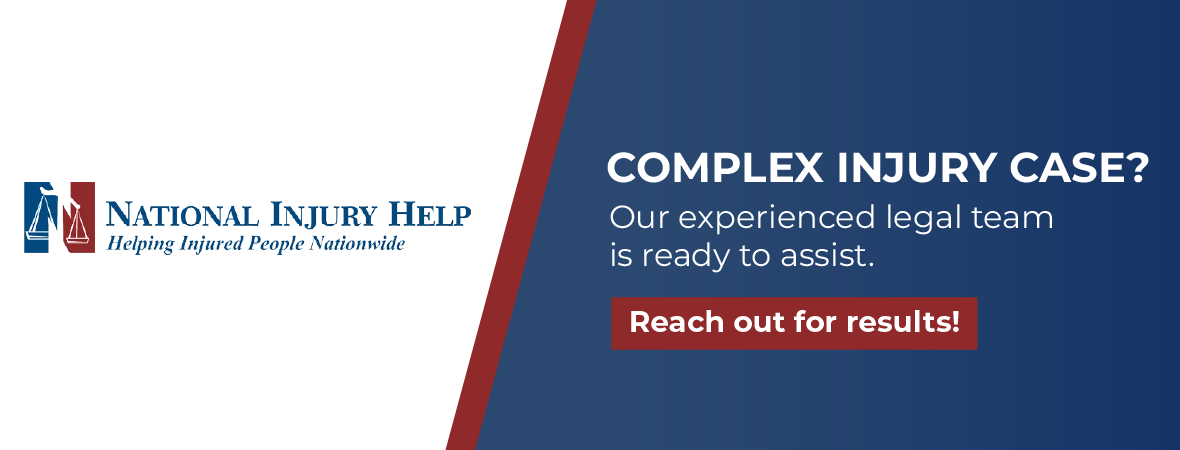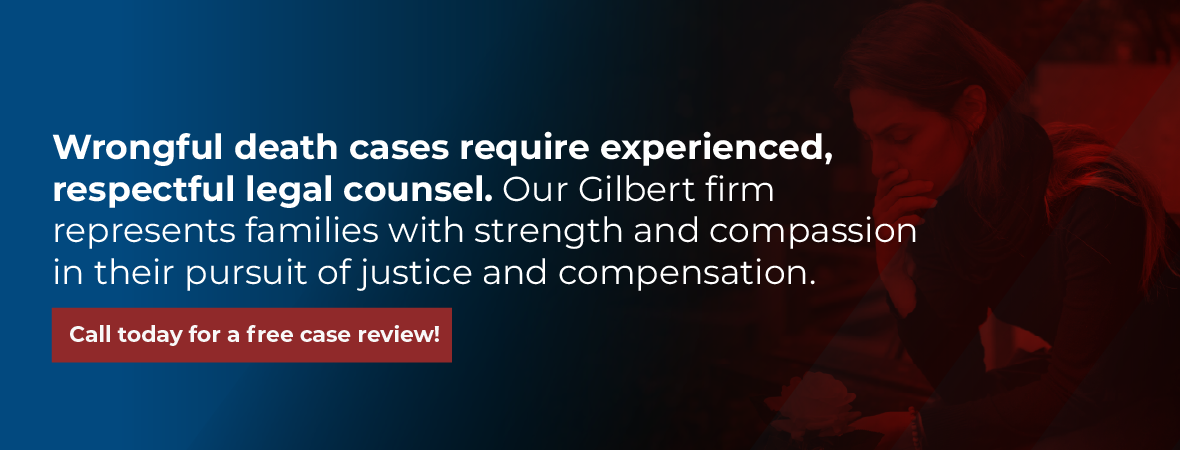Losing a loved one due to someone else’s actions is a painful and life-changing experience. Contact our team at National Injury Help today by calling 1 (800) 214-1010. We are here to help your family seek justice and the compensation you deserve.
You are reading this because someone you love has died, and the loss was not just painful, it was also unfair. We know no amount of money or legal work can fill the empty seat at your table.
Yet we also know that bills arrive, jobs pause, and futures drift in confusion when a family member is taken too soon. Arizona law calls this type of case a “wrongful death,” and it gives families a way to hold the wrongdoer responsible. At National Injury Help, our job is to guide you through the legal steps while you focus on healing.
Every wrongful-death claim sits on the idea that the person you lost would be alive today if another party had followed basic safety rules. The law lets you seek compensation to cover funeral costs, lost income, and the unseen pain that sits in your chest every morning. A lawsuit will never bring back a life, but a fair recovery can stabilize your finances and bring a sense of closure.
What Qualifies as Wrongful Death Under Arizona Law?
Losing a loved one is always painful, but the pain is even worse when the death could have been prevented. That is what wrongful death law in Arizona is all about. It gives families a chance to seek justice and financial help when someone else’s careless, reckless, or intentional actions cause a death that should not have happened.
Before we look at specific examples, let’s start with a clear explanation of what Arizona law says.
The Legal Definition of Wrongful Death in Arizona
Under Arizona Revised Statutes (A.R.S.) § 12-611, a wrongful death claim is possible if:
Someone dies because of another person’s negligence, recklessness, or intentional behavior.
If the person had survived the incident, they would have had the right to file a personal injury lawsuit.
In simpler terms, wrongful death means that someone did something wrong, and that wrongdoing caused a death. If the person who died could have sued for personal injury if they had lived, then their family may have the right to sue for wrongful death.
This law allows certain family members or representatives to file a claim in civil court and request compensation for their loss.
Examples of Wrongful Death in Gilbert and Across Arizona
It can be easier to understand what qualifies as wrongful death by looking at everyday situations. Below are some of the most common types of cases that wrongful death attorneys handle in Gilbert and other Arizona communities.
- Car, Truck, or Motorcycle Accidents
Vehicle crashes are one of the leading causes of wrongful death claims. Gilbert has many busy roads and intersections, and traffic continues to grow. A driver who speeds, texts while driving, or ignores traffic lights can cause a deadly crash.
Whether it is a car slamming into a motorcycle, a semi-truck failing to brake, or a driver running a red light, these accidents often qualify as wrongful death when a life is lost due to negligence.
- Pedestrian Accidents
Many wrongful death cases involve pedestrians who are hit while walking. These are especially tragic because the victim often has no protection at all.
A person crossing the street or walking on the sidewalk may be struck by a speeding or distracted driver. These cases often occur at intersections, school zones, or areas without proper crosswalks.
- Medical Malpractice
Not every medical mistake is a wrongful death case. But when a doctor, nurse, or hospital fails to provide proper care, and that mistake leads to death, it may qualify. Examples include:
- Misdiagnosing a serious illness
- Giving the wrong medication
- Surgical mistakes
- Failing to monitor a patient after surgery
- Ignoring clear warning signs
Medical providers have a legal duty to give safe, professional care. When they fail in that duty, and someone dies as a result, the family may file a wrongful death lawsuit in Gilbert.
- Dangerous Property Conditions (Premises Liability)
Property owners have a responsibility to keep their spaces safe. If someone dies because of unsafe conditions on private or public property, that may also qualify as wrongful death. Examples include:
- Falls from unguarded balconies or stairs
- Fires caused by faulty wiring
- Electrocution due to exposed wires
- Drowning in unsafe swimming pools
- Collapsing decks, roofs, or walkways
These dangers often affect guests, workers, or even children. If the property owner knows about the hazard or fails to fix it, they may be held legally responsible.
- Defective Products
Manufacturers are supposed to design and sell safe products. But sometimes they cut corners, ignore safety tests, or fail to warn consumers of known risks. Common examples include:
- Cars with faulty brakes or airbags
- Batteries that catch fire or explode
- Children’s toys with choking hazards or toxic materials
- Prescription drugs with harmful side effects
- Defective machinery or tools
If a product defect leads to someone’s death, the company that made or sold the item can be sued for wrongful death.
- Workplace Accidents
Some jobs carry more risk than others, but employers are still required to provide safe working conditions. Fatal injuries often happen on construction sites, in factories, or during deliveries. Examples include:
- Falls from scaffolding or rooftops
- Crushed by heavy equipment or vehicles
- Electrical shocks
- Exposure to toxic substances
- Accidents due to poor training or missing safety gear
Family members may have a right to file a wrongful death claim alongside or in addition to a workers’ compensation case, depending on the situation.
Civil vs. Criminal Cases: Gilbert Wrongful Death Attorney Explains What’s the Difference
It is important to understand that a wrongful death lawsuit is a civil case, not a criminal case. A criminal case is brought by the government to punish someone with jail or prison time. A civil case is brought by the family to recover money for their loss.
You can file a wrongful death lawsuit even if the person who caused the death is not charged with a crime. You can also sue even if a criminal jury finds the defendant not guilty. Civil and criminal cases are completely separate. For example:
- A drunk driver may be tried in criminal court for DUI manslaughter.
- At the same time, the victim’s family may sue in civil court for wrongful death damages.
Winning a civil case requires proving the claim by a “preponderance of the evidence,” which means showing that it is more likely than not that the other person caused the death. This is a lower standard than the “beyond a reasonable doubt” used in criminal court.
Who Can File a Wrongful Death Claim in Arizona?
Understanding who may sue prevents family conflict and delays. Arizona law lists eligible claimants in a clear order.
Eligible Claimants Under Arizona Law
Let us introduce the people who the statute allows to bring the claim:
- Surviving spouse. The husband or wife has priority.
- Children. Minor or adult children can file if there is no spouse or alongside a spouse.
- Parents or legal guardians. If the deceased was unmarried and childless, parents may sue.
- Estate representative. When none of the above exist, the personal representative files for the benefit of all heirs.
Rules for Multiple Family Members
Families often wonder how claims work when several relatives qualify. Here is a simple outline:
- Joint filing. All eligible parties can unite in one lawsuit, avoiding duplicate costs.
- Shared recovery. If the case wins, the court divides the money based on the loss and dependency.
- Conflict resolution. When family members disagree, the judge may appoint a neutral guardian to protect the minor’s interests.
Legal Claims on Behalf of a Minor or Dependent
When the person filing is under eighteen or mentally disabled, Arizona courts require an adult guardian to guide the claim. We help families set up that guardianship so every share is safe and approved.
Types of Damages an Experienced Gilbert Wrongful Death Attorney Can Secure for Victims
Damages are the dollars that help a family rebuild. They fall into three main groups.
Economic Damages
Let us start with the costs you can show on paper:
- Funeral and burial costs. Receipts for services, caskets, plots, and memorial events add up quickly.
- Medical expenses before death. Final hospital stays and ambulance trips belong in the claim.
- Lost wages and future earnings. We hire economists to project what the person would have earned but for death.
- Value of household services. Cooking, cleaning, child care, and home repairs have replacement costs that deserve payment.
Non-Economic Damages
Money cannot measure grief, yet the law allows compensation for emotional loss:
- Pain and suffering of survivors. The everyday ache you feel is real, and a jury can value it.
- Emotional anguish. Anxiety, depression, and loss of joy all count.
- Loss of care, guidance, and companionship. Children lose mentors. Spouses lose partners. Parents lose future support.
Punitive Damages
Punitive damages punish shocking conduct and warn others. Courts consider them when a driver was drunk, a company hid defects, or a doctor altered records.
Factors That Influence Compensation
Many details change the size of an award. Below are common factors:
- The age, health, and career path of the deceased.
- The closeness and financial reliance of each survivor.
- The strength of evidence shows the defendant was at fault.
Gilbert Wrongful Death Attorney Explains The Wrongful Death Lawsuit Process in Gilbert
A clear map of the legal road helps families breathe easier.
Step 1: Initial Consultation with an Attorney
You start by telling your story. We collect facts, study police and medical papers, and decide which parties share blame. We also give an honest view of potential value.
Step 2: Investigation
Our team orders medical charts, inspects scenes, interviews witnesses, and hires experts. Careful research builds leverage for settlement talks.
Step 3: Filing the Lawsuit
We draft a complaint and file it in the Maricopa County Superior Court. Then, a process server hands the papers to each defendant, starting the formal deadlines.
Step 4: Settlement Negotiation or Litigation
Insurance carriers may offer quick cash to end the case. We compare that sum to real losses and advise you. If the offer is unfair, we press on through depositions, motions, and trial prep.
Step 5: Resolution and Distribution of Funds
Most cases settle before trial, but some reach a verdict. After money arrives, we pay costs, fees, and liens, then distribute shares to each beneficiary according to court order.
Statute of Limitations and Legal Deadlines
Deadlines can save or sink a claim. The General Rule is two years from the date of death. Arizona sets a strict two-year window to file. Courts rarely excuse late cases.
Exceptions
Certain facts pause or “toll” the clock:
- Delayed discovery. When the cause of death was hidden, time starts when the truth is found.
- Minors. Children may get extra years, starting when they turn eighteen.
- Government claims. Suits against a city, county, or state need special notices and shorter deadlines.
Importance of Acting Quickly
Evidence fades. Skid marks vanish. Witnesses move. Acting early keeps proof fresh and raises your chances of success.
Proving Fault in a Wrongful Death Case
Negligence has four parts, and we must show each one.
Elements of Negligence
Here is the chain we must build:
- Duty of Care: The defendant had a fundamental responsibility to ensure the safety of others. This legal obligation requires individuals to act preventively to avoid causing harm, emphasizing the importance of reasonable precautions.
- Breach of Duty: The defendant failed to fulfill this duty by neglecting necessary safety measures. This breach demonstrates a lack of attention to safety standards and a disregard for the potential consequences of their actions.
- Causation: There is a clear connection between the defendant’s breach and the tragic outcome. The actions or inactions of the defendant directly led to the death, indicating that had they upheld their duty, the incident could have been avoided.
- Damages: As a result of the defendant’s negligence, the family has suffered significant losses, including emotional distress and profound grief. These damages reflect not only financial implications but also the deep disruption to their lives caused by this tragedy.
Evidence Required
We gather proof step by step:
- Police or accident reports to set the scene.
- Medical records are needed to link injuries to the event.
- Eyewitness accounts to confirm what happened.
- Expert testimony to explain complex points like vehicle speed or medical errors.
Comparative Fault in Arizona
Even if the person who died was partly at fault, Arizona law still allows recovery. The court reduces damages by the percentage of shared blame. Our job is to push that number as low as proof allows.
How Our Gilbert Wrongful Death Attorneys Can Help
At National Injury Help, we believe grieving families need space, not more stress. Our Gilbert-based team takes on the legal burdens so you can focus on what truly matters: honoring your loved one and supporting each other through the healing process.
Below are the key reasons why hiring a wrongful death attorney in Gilbert can make a world of difference during one of life’s hardest seasons.
Compassionate Legal Support During Grief
When someone you love dies because of negligence, it is more than just a legal matter; it is deeply personal. We understand that no amount of money can replace the person you lost. But legal action can offer some comfort. It holds the responsible party accountable and gives your family financial stability to move forward.
Our job is to carry the legal weight so you don’t have to. That includes:
- Handling phone calls from insurance companies
- Managing court paperwork and filing deadlines
- Scheduling meetings and responding to defense attorneys
- Preparing every detail of your case behind the scenes
You do not need to relive the accident again and again. We act as a buffer between you and the legal world, so you can focus on family, mourning rituals, and emotional recovery.
In-Depth Investigation and Evidence Collection
Not every wrongful death case is straightforward. Sometimes, the truth is buried in small details that only a trained eye can spot.
That is why we work with experienced investigators, medical professionals, and accident reconstruction specialists. Their job is to gather facts, examine records, and uncover the full picture.
Here are some of the ways we investigate your case:
- Interviewing eyewitnesses
- Reviewing police reports and medical records
- Examining photos, security footage, or dash-cam video
- Analyzing cell phone records and data from vehicles
- Consulting with doctors to understand how and why the person died
We do all this to find out what really happened, identify everyone who may be legally responsible, and build the strongest possible case for your family.
Deal with Insurance Companies and Defense Teams
Insurance adjusters often sound polite and supportive when they call. But their job is to protect the company’s bottom line, not your family. They may ask you confusing questions, delay your claim, or offer a quick settlement that barely covers funeral expenses.
Our attorneys know their playbook. We’ve spent years negotiating with insurance companies and defense lawyers. We know what your claim is worth, and we fight to make sure your settlement reflects the true emotional and financial toll of your loss.
We also protect you from common mistakes, like:
- Giving recorded statements that can be used against you
- Signing documents that limit your rights
- Accepting a lowball offer without knowing the full value of your claim
When we speak to insurance representatives on your behalf, we make it clear: your family deserves full and fair compensation.
Legal Strategy for Maximum Compensation
Every case is different. Some settle quickly through negotiation or mediation. Others need to go to trial. Our team helps you understand all your options and guides you every step of the way.
We build a strategy that fits your situation by:
- Reviewing the strengths and weaknesses of your case
- Explaining timelines and what to expect at each stage
- Recommending the best path forward based on facts, not guesswork
- Preparing every detail in case we need to argue before a jury
Our goal is always to secure the best possible outcome for your family. That means not only covering medical bills and funeral costs, but also helping with lost income, future expenses, emotional loss, and any pain and suffering you’ve endured.
Local Expertise That Makes a Difference
Gilbert is not just a city: it is a legal community with its own unique processes. Every court has its preferred filing rules, document formats, and internal procedures. Knowing those small details saves time and prevents costly delays.
Our legal team knows the Gilbert court system inside and out. We are familiar with:
- Local judges and their courtroom preferences
- Filing rules and required documents
- Which forms to use and how to format them correctly
- Where to park and how to get hearings scheduled quickly
That local insight helps us move your case forward smoothly, without unnecessary mistakes or miscommunication. It also helps us explain the process to you in everyday language, not legal jargon.
Losing a family member to wrongful death is one of the hardest experiences a person can face. You should not have to deal with legal stress on top of emotional pain. With the right Gilbert wrongful death attorney on your side, you gain more than just legal support; you gain a team that truly cares about your future.
At National Injury Help, we listen first. We take time to understand your loved one’s story and what they meant to you. Then we fight with everything we have to make sure their loss is acknowledged, and your family is treated with fairness and dignity.
You will never feel like just another case file to us. You are a family who matters, and we are honored to stand with you.
FAQs About Wrongful Death in Gilbert
Do I Have a Claim if the Person at Fault Was Not Charged Criminally?
Yes. Civil claims are separate and need only prove fault by a “preponderance of evidence,” which is a lower bar than criminal proof.
What If More Than One Person Is at Fault?
Arizona allows you to sue each party that played a role; so if more than one person is at fault, the court divides responsibility by percentage.
How Long Does a Wrongful Death Case Take?
Most settle in nine to eighteen months. Cases that go to trial can take two years or more, but each timeline is unique.
Can I Sue a Business or Government Agency for Wrongful Death?
Yes, you can sue both a business or a government agency for wrongful death; however, government cases require quick notice letters and strict forms. We handle those steps.
Do I Have to Go to Court, or Can We Settle?
Settlements resolve most cases. You only attend a trial if talks break down and you choose to keep fighting. We prepare you either way.
Contact a Fatal Accident Lawyer in Gilbert
Grief is heavy enough on its own. Let us take care of the legal side so you can focus on healing, remembering, and being there for your family.
At National Injury Help, we offer free consultations, and you will never pay legal fees unless we win compensation for you. We proudly serve families in Gilbert, Mesa, Tempe, Chandler, Apache Junction, and the surrounding East Valley.
If someone you love lost their life because another person or company failed to act safely, you deserve answers, accountability, and the financial support to move forward.
Call us today at 1 (800) 214-1010. We’ll listen to your story, explain your legal options clearly, and guide you through every step with care and respect. We’re here when you’re ready.





